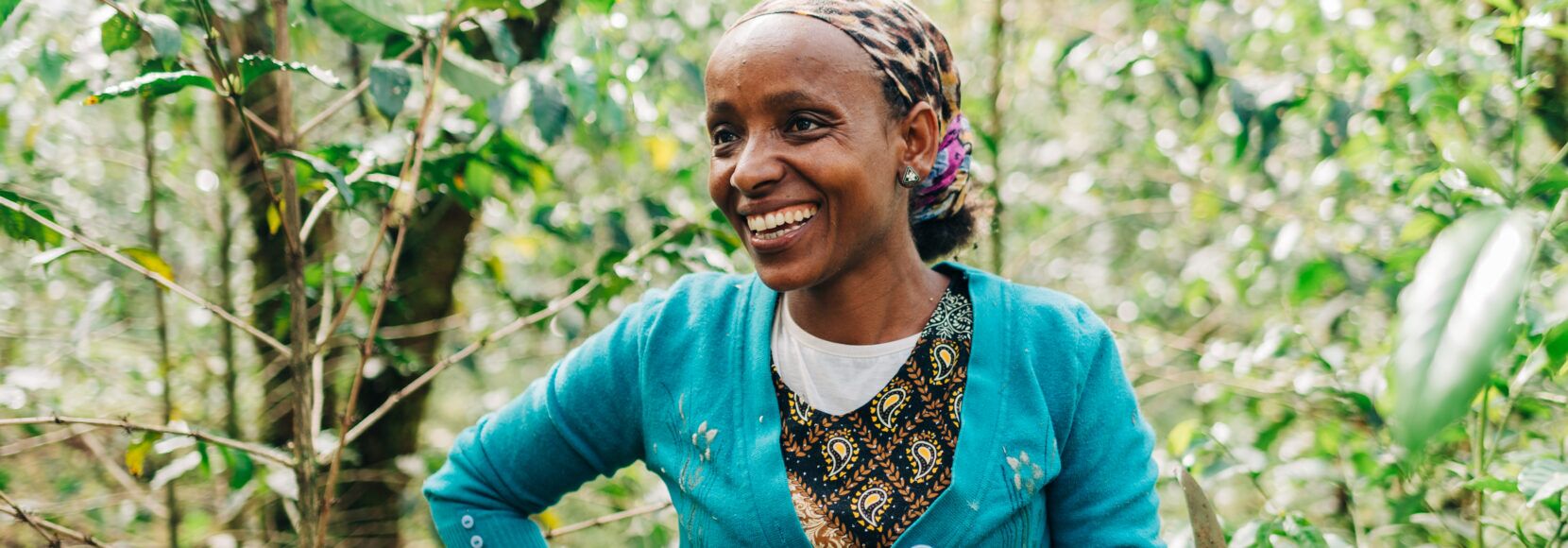
Breaking Ground: How Women Are Transforming Ethiopia’s Coffee Sector
In Ethiopia’s remote coffee-growing regions, a remarkable transformation is underway. When TechnoServe began its coffee work here in 2011, only 4% of coffee farmers in its training programs were women—despite women performing crucial roles in coffee production. Through innovative training approaches and community engagement, that number has risen to 43%, reshaping families and communities. Here’s how thoughtful intervention is helping break down centuries-old barriers and creating more prosperous coffee-farming households.
The Complex Web of Challenges
The barriers facing women in Ethiopia’s coffee sector run deep. Land ownership predominantly rests with men, creating a cascade of limitations for women farmers. “Women do not own land, and so they don’t have a lot of leeway to make decisions,” Catherine Musangi, senior coffee program manager at TechnoServe, explained. “Because they don’t own land, they don’t feel ownership of even the crop that is there.”
This lack of ownership exists despite women’s crucial role in coffee production. They perform essential tasks like weeding and harvesting, yet they have historically been left out of training opportunities and financial decisions. The challenge extends beyond mere access to resources—it’s deeply rooted in cultural norms and self-perception.
“Because of the way things have been in the status quo, a lot of women lack self-belief,” Catherine shared. “They don’t even count their work as a contribution to coffee.” This mindset, combined with cultural expectations that only men should attend agricultural training, created a significant barrier to progress.
Women coffee farmers perform essential tasks like weeding and harvesting, yet they’re often left out of accessing training opportunities and making financial decisions. (TechnoServe / Olivia Sakai)
Reimagining Training: A Family Affair
TechnoServe’s approach to breaking down these barriers started with a simple yet powerful strategy: making training sessions genuinely inclusive. The team realized that speaking to women alone wouldn’t be enough—they needed to engage entire households and communities.
In a pivotal move, they convened meetings with men to discuss the importance of involving their wives in training sessions. The program also adapted to women’s needs in creative ways. Understanding that childcare responsibilities often prevented women from attending training, they made sessions child-friendly.
“We welcome them together with the children and make sure that we take care of the children as they also participate in training,” Catherine said. Training schedules were made flexible to accommodate women’s availability, ensuring maximum participation.
Beyond Agriculture: Financial Empowerment and Gender Equality
In collaboration with Nespresso, TechnoServe introduced new training modules that went beyond traditional agricultural practices. The training incorporated lessons on gender equality, joint decision-making, and household management. This holistic approach proved transformative.
“Both men and women can do better if they work jointly and if they make household decisions together,” Catherine explained. The results were remarkable: women’s participation in training programs soared from 4% to 43%, with plans to reach 50% in ongoing projects.
Coffee farmer Netsanet Yakob (left) with her husband, Aregaw Amato, in Sidama, Ethiopia.
The Ripple Effect
The impact extends far beyond the coffee farm. Women who previously confined themselves to household chores have launched and grown successful businesses. Men have begun to recognize that empowered women contribute to more prosperous households. “The men realized that when the women are empowered, the household grows and becomes better,” Catherine observed.
The transformation is visible in the communities’ aspirations. Families plan to send their children to college and build new homes. The program’s success demonstrates how addressing gender inequality in agriculture can catalyze broader social and economic development.
This evolution in Ethiopia’s coffee sector, supported by TechnoServe’s partnership with Nespresso, shows how thoughtful intervention can help break down centuries-old barriers. By engaging both men and women, adapting to local needs, and addressing both practical and cultural challenges, the program has helped create more equitable and prosperous coffee-farming communities.

